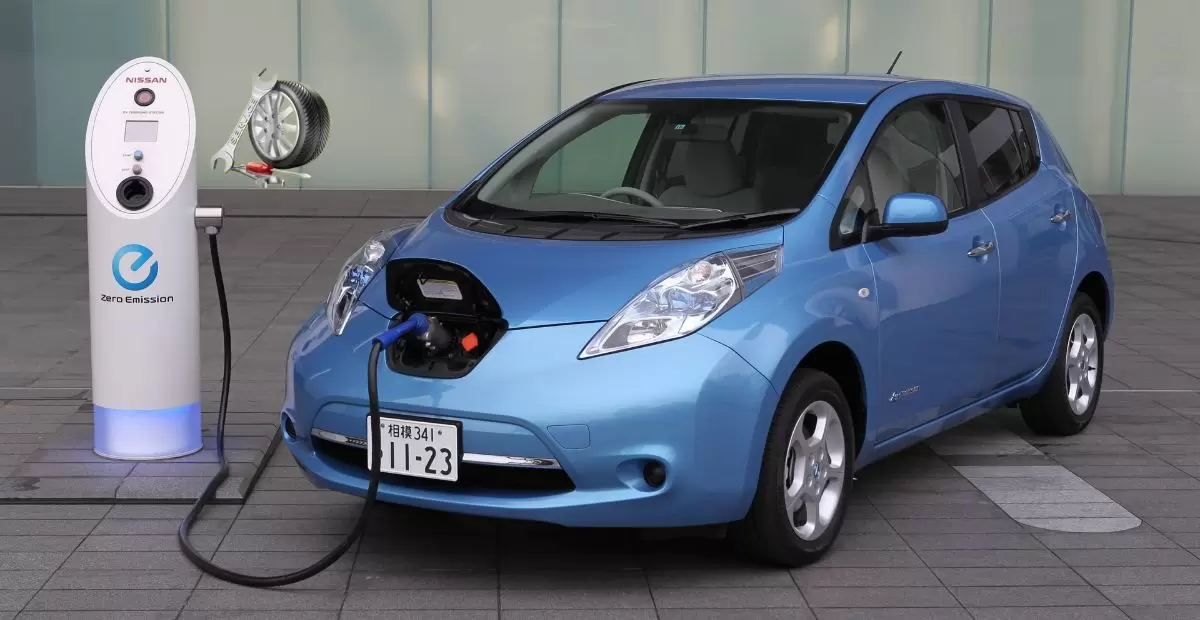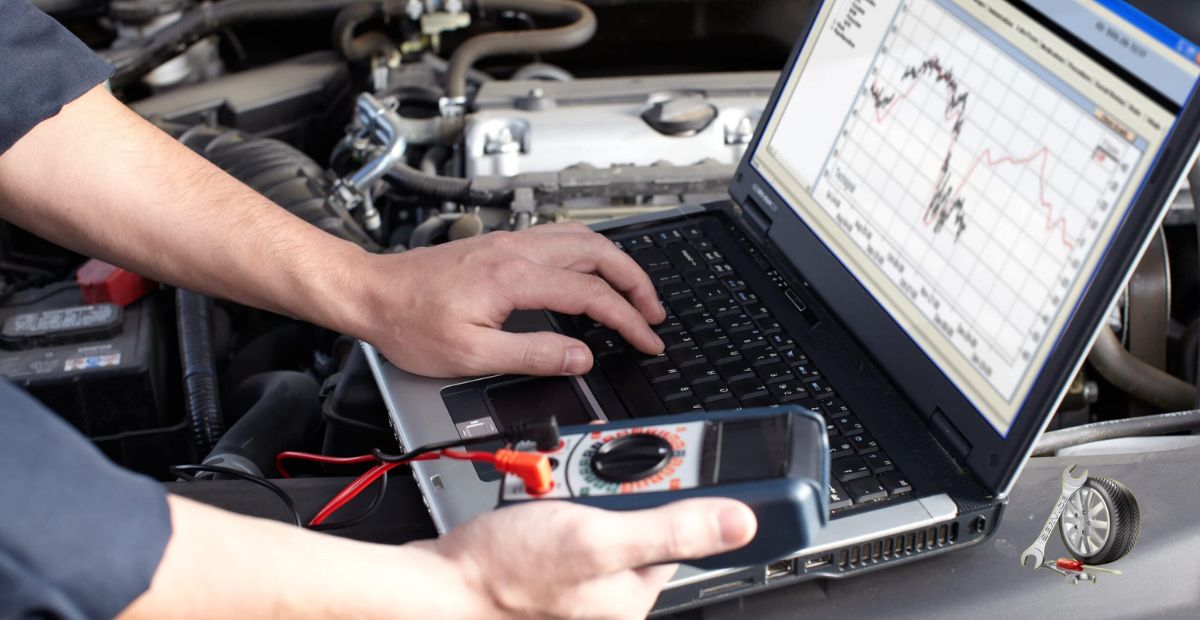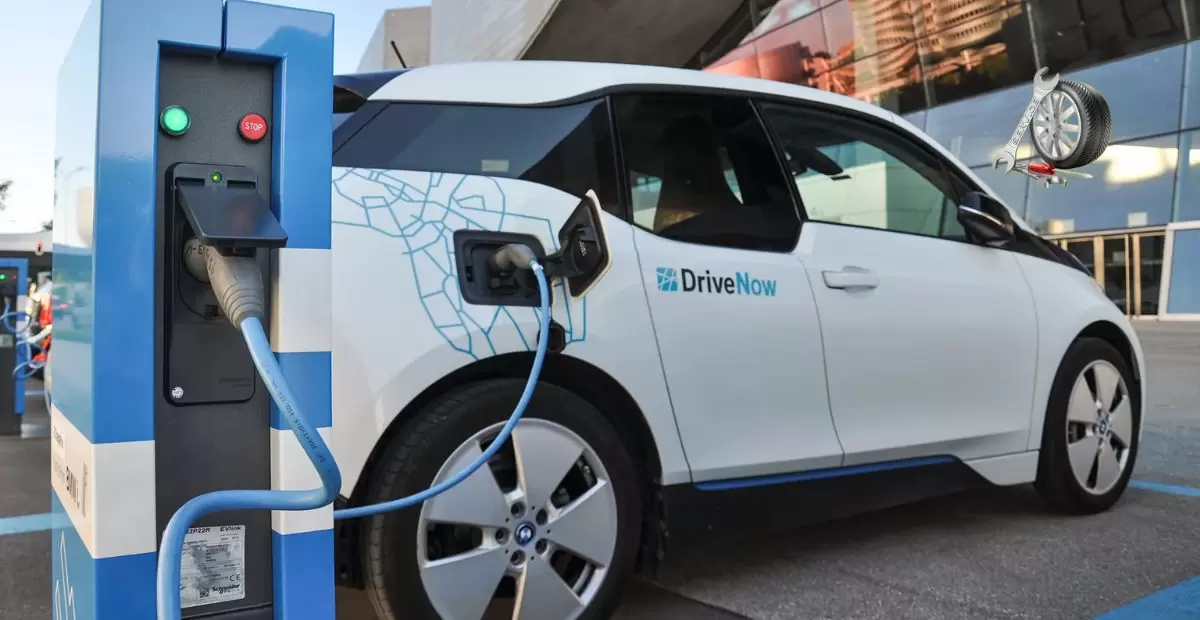Do Electric Cars Need Oil Changes?
EVs do not necessarily that the same process as gasoline cars and require oil as in traditional cars. They are magnetically-based which means they don’t have any requirement for internal combustion engines. Electric vehicles are much less complex to maintain and are natural to the soil.
The sun sank below the horizon with its colors splashing over as the horizon took on an orange glow. One, in particular, stood out: One, in particular, stood out: Do electric cars need oil changes? It seemed like a simple query, but its implications were profound. This one question could change everything he thought he knew about cars.
In contrast to the situation with ethanol and gasoline-powered cars, electric cars do not need any oil changes. The traditional internal combustion engines. These have a dramatically lower number of rotating components and therefore they do not need oil to keep them greased. To conclude, oil changes are not used by electric vehicles.
Lubrication in Electric Cars
During the operation process of electric cars, some materials must be engaged in smooth sliding and unobstructed performance in which friction is not produced. The cars are still attached to those lubricants, and the major assembly remains that of people. Legitimate grease is pivotal to guarantee the unwavering quality and life span of the entire framework.
From one perspective, the customary activity of gas-powered motor cars request an oil change after some time; then again, electric vehicles don’t need such oil changes. However, the oil changes are the time such as performance and endurance. The use of electric cars reduces product usage and, in turn, encourages the minimization of waste.
Mechanics of Electric Cars
Electric vehicles are directly run from the grid by electric motors which are powered by a rechargeable battery. They haven`t to do oil changes. Contrary, electric cars need periodically to undertake maintenance to their electric systems like battery controls and software updates that are meant to enhance efficient and long-term performance.
Since electric vehicles don’t have motors that require oil for oil and cooling, they take out the requirement for ordinary oil changes, lessening support costs and ecological effects. This change in support needs features one of the many advantages of electric vehicles, making them a cleaner and more maintainable choice for individual transportation.
Read More: Electric Cars Use Oil
No Combustion Engine, No Oil?
Needless to say no internal combustion, no oil sounds like a good idea! In the eclecticism of electric vehicles, the consumption of conventional internal combustion engines diminishes. the need for gasoline and oil changes: they have negative effects on the environment, and the longer it lasts, the higher the cost to maintain it.
With the absence of combustion engines, the phrase ‘oil changes’ takes on a different meaning in the automotive industry. Instead of scheduling routine oil changes, electric vehicle owners focus on maintaining battery health and efficiency. The transportation sector seeks cleaner alternatives to traditional fossil fuel reliance.
Environmental Impact Comparison
When you make a comparison of the environmental consequences of different kinds of activities, such as various types of transportation or household habits, you must always remember to take into account such variables as energy consumption, emissions, and resource depletion.
Changing vehicular oils, a common procedure when performing car maintenance, may bring about environmental consequences during the use of petroleum product, as well as, recycling used oil and going for engine oil that would be changed rarely, this is a good example of how environmental footprint associated with routine car maintenance.
Why Electric Cars Don’t Rely on Oil?

Unlike gas cars, electric ones don’t need oil since the power they run on comes from batteries. This power comes instead of gasoline. Electric cars can’t be styled in such a manner that need oil for lubrication and cooling. Due to this fact, oil changes are no longer needed, thus equipment servicing costs are reduced and impact is lessened.
Without the need for oil changes, electric cars turn out to be a practical and greener choice as compared to regular cars. They affect a reduction in greenhouse gas emissions and a decreased dependence on finite oil resources. Electric cars are building a way to improve the future of traveling more cleanly and efficiently.
Longevity of Electric Car Components
Electric car components have an incredibly long duration time when compared to the lives of automobile parts used in internal combustion engine cars. Different from internal combustion engine-operated vehicles, electric cars generally need less maintenance because of their simpler mechanical structures.
One remarkable feature of EVs is the failure to replace oil in electric vehicles. Contrary to the situation in which engines require oil for lubrication and cooling, electric vehicles eliminate the demand for oil due to the applied alternate technology. the usage of petroleum-based products that would translate to their saving in energy and cost.
The Role of Lubrication in Electric Cars
Lubrication is an electric car’s friend making moving parts slide together like a magnet that subsequently helps to increase efficiency and extend components’ life expectancy. Elements like bearings, gears, and axles require accurate lubrication to reduce friction and thus endure the most it can to prove efficiency.
But in as much as they lack the need for frequent oil changes being common with petrol vehicles, electric vehicles have a different modus operandi since they depend on electric motors instead of internal combustion engines. But also incontestably contributes to the quality of the driving experience leading to quieter operation.
Oil Changes: Irrelevant in Electric Cars?
In the field of eco-friendly cars, oil changes become obsolete, because eco cars don’t have internal combustion engines. Oil and electric cars do not need these components. In place of that, they utilize batteries and electric motors for propulsion that eliminate the necessity for oil extraction too.
EVs gradually challenging the traditional flow of oil change services. EV owners can benefit from cheaper maintenance and reduced pollution emissions without the trouble of oil-change appointments. With oil changes being an outdated idea, nowadays.
Oil Changes vs. Electric Car Maintenance
As for maintenance, conventional cars are the best example of oil changes to keep engines running appropriately. The process includes the disposal of the old oil, while the engine moving parts have to be lubricated by introducing new oil. These machines are set up to share battery check-ups and brake and electrical part inspections. (Cars Use Oil)
Oil changes are a regular attendance for conventional cars, but the maintenance routine of electric cars is much simpler. Electric car owners will thus pay reduced maintenance charges and have fewer visits to the mechanic. That not only reduces the use of petroleum-based products. (Cars Use Oil)
Maintenance Requirements for Electric Cars

The support of electric vehicles (EVs) is substantially less than ordinary fuel-controlled cars. One of the benefits is that EVs don’t have gas-powered motors, so they don’t need oil substitutions or routine overhauling. Thereby, it reduces the need for a visit to the mechanic which cuts maintenance expenses overall.
Oil is a major source of fuel for conventional cars whereas electric cars do not require this resource at all. On the other hand, they run on energy saved in batteries and they are not a source of emission and pollution. The most convenient and easy maintenance caused the development of loyalty among drivers towards green transportation.
Best Practices for Electric Car Maintenance
To make sure your electrical car gets the best out of its life and performance, regular maintenance is essential. New challenges on your electric car will suffer through. Remind though, that just like in the case of petrol cars that use oil as a lubricant, the electric car requires proper lubrication care to work without any problems.
Although electric cars are not powered with oil like other vehicles, they do benefit from the general system services. Checking and testing brake fluid, and replacing all electrical components that are not in the working order are among this checklist. The life of your electric car will be prolonged and offer you joyful driving for many years.
Components in Electric Cars that Replace Oil
Having less concern with the batteries and electric motors, which one uses to operate electronic cars instead of the oil-based systems in traditional cars. The automobile is the main factor that requires gasoline or oil as essential things for its operation. Electric cars produce zero tailpipe emissions, thus contributing to cleaner air and reduced impact.
In the case of electric cars, the batteries are the source of power that drives the electric motor which eliminates the necessity to use oil for combustion engines. oil lubrication across internal combustion engines. This move away from oils for the components is an essential step for sustainable transport operations.
Expert Opinions on Oil Changes for Electric Cars

While electric vehicles don’t require oil changes for their engines, expert opinions vary as to whether other components, like the gearbox or the bearings, might also need oils to be replaced periodically. Electric cars in principle differ from conventional vehicles in their low consumption of oil-based or mineral lubricants.
Indeed, while vehicles with internal combustion engines (ICE) apply oil to achieve lubrication and maintenance, oil trading. Expert views about oil changes with electrics are well epitomized by the portrayal of new lubrication techniques and the significantly reduced need for maintenance which is typical for today’s oil-free cars.
FAQs
What maintenance do electric cars need?
Electric cars generally require less maintenance compared to gasoline cars. Routine tasks include checking the brakes, tires, and battery health.
How often should I service my electric car?
Overhauling spans for electric vehicles differ however are normally less successive than for conventional vehicles. Counsel your vehicle’s manual or maker for explicit suggestions.
Are there any fluids that need to be changed in electric cars?
Electric cars have fewer fluids than gasoline cars. While there’s no oil to change, some models may require periodic checks or replacements of coolant fluids for the battery and motor.
Conclusion
Electric cars present a revolutionary shift in automotive technology, notably in their maintenance requirements. Not at all like customary vehicles, electric vehicles don’t depend on gas-powered motors that require normal oil changes. Instead, their simplified mechanical structures and reliance on electric motors result in reduced maintenance needs.
As the automotive industry embraces sustainable solutions, the absence of oil changes in electric cars marks more efficient transportation systems. This shift not only reduces environmental impact but also simplifies making electric vehicles a compelling choice for the future of mobility.
